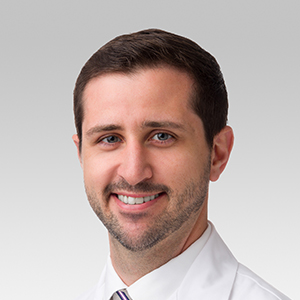What Is Cardiac MRI?
A Look Inside Your Heart’s Performance
Published January 2024
Like all pumps, your heart — the superhero of pumps — is not immune to breakdown. If your physician suspects that you may have a heart problem, cardiac magnetic resonance imaging, also known as cardiac MRI, may be ordered. This noninvasive tool allows cardiologists and radiologists to see all of your heart’s parts in action.
Northwestern Medicine cardiologist R. Kannan Mutharasan, MD, and radiologist Bradley Allen, MD, answer some common questions that you may have about cardiac MRI.
What does a cardiac MRI do?
Cardiac MRI can test for multiple problems including:
- Heart failure
- Cardiac masses
- Valve disease
- A blood clot in the heart
- Acute cardiac injury such as myocarditis
Cardiac MRI is considered the gold standard for evaluation of heart size and function.— Bradley D. Allen, MD
Cardiologists can use it to evaluate an arrythmia (heart rhythm disorder) evaluation. They can also use it to help plan treatment for arrythmias, such as ablation, which is a nonsurgical treatment.
What is special about a cardiac MRI?
“Cardiac MRI is considered the gold standard for evaluation of heart size and function,” says Dr. Allen. “In addition, MRI is excellent at tissue characterization and can provide information about scar or inflammation to the heart muscle.”
More advanced types of MRI, like stress perfusion, can help your care team determine if there is less blood flowing to your heart. A special type of MRI called “phase contrast imaging” can visualize and measure blood flow and velocity. Results from these tests can diagnose various conditions and help your care team estimate risk and potential success of various treatment strategies.
“Hypertrophic cardiomyopathy, a genetic condition that affects up to one in 500 individuals, is a good example of a condition that cardiac MRI may pick up, but a more routine cardiac test like an echocardiogram may miss,” says Dr. Mutharasan. “Understanding whether someone has hypertrophic cardiomyopathy is important because not only does it affect the individual patient, but it may impact the health of family members who may have the condition but not realize it.”
Dr. Allen says that cardiac MRI is an exciting research space. “Some work is focused on how to make the imaging faster so the studies can be completed in 30 minutes or less. Additional work has focused on how our ability to characterize changes in heart tissue can help better define patient diagnoses and risk in diseases like cardiac amyloidosis and in patients with a heart transplant,” he says.
In addition, the newer 4D flow MRI evaluates cardiac blood flow and offers a more comprehensive picture of the heart and the aorta. And, artificial intelligence continues to help advance cardiac MRI in many different areas, including patient imaging, analysis and quantification, and reporting.
How does cardiac MRI work? How long does it take?
MRI generates images using a very strong magnetic field. Patients lie flat in the center of the MRI scanner which looks like a round tube. A technician will put a special piece of equipment called a coil on your chest.

“The MRI machine makes many loud sounds and vibrations, which is the machine producing small magnetic field changes within the patients,” says Dr. Allen. “The coil on the chest functions like an antenna that receives the magnetic signals coming from the patient.”
These signals are sent to a computer where they are used to build an image of the part of the body being scanned. The images are then reviewed by a cardiac imaging expert. The test takes about 60 to 90 minutes. As part of the test, you may need an IV (into the vein) injection of gadolinium contrast agent, which can improve the quality of the MRI images.
Are there any risks?
Because the MRI machine uses strong magnets, you cannot bring anything metal into the scanner. All patients are screened for metal implants or other metal objects that could be unsafe in the scanner.
Patients with an implantable cardioverter-defibrillator (ICD) or pacemaker can usually undergo MRI but require special settings to be used on their device. There is no ionizing radiation associated with MRI so pregnant people can undergo MRI safely but they cannot receive the gadolinium contrast agent. If you have poor kidney function, you may not be eligible to receive gadolinium.







